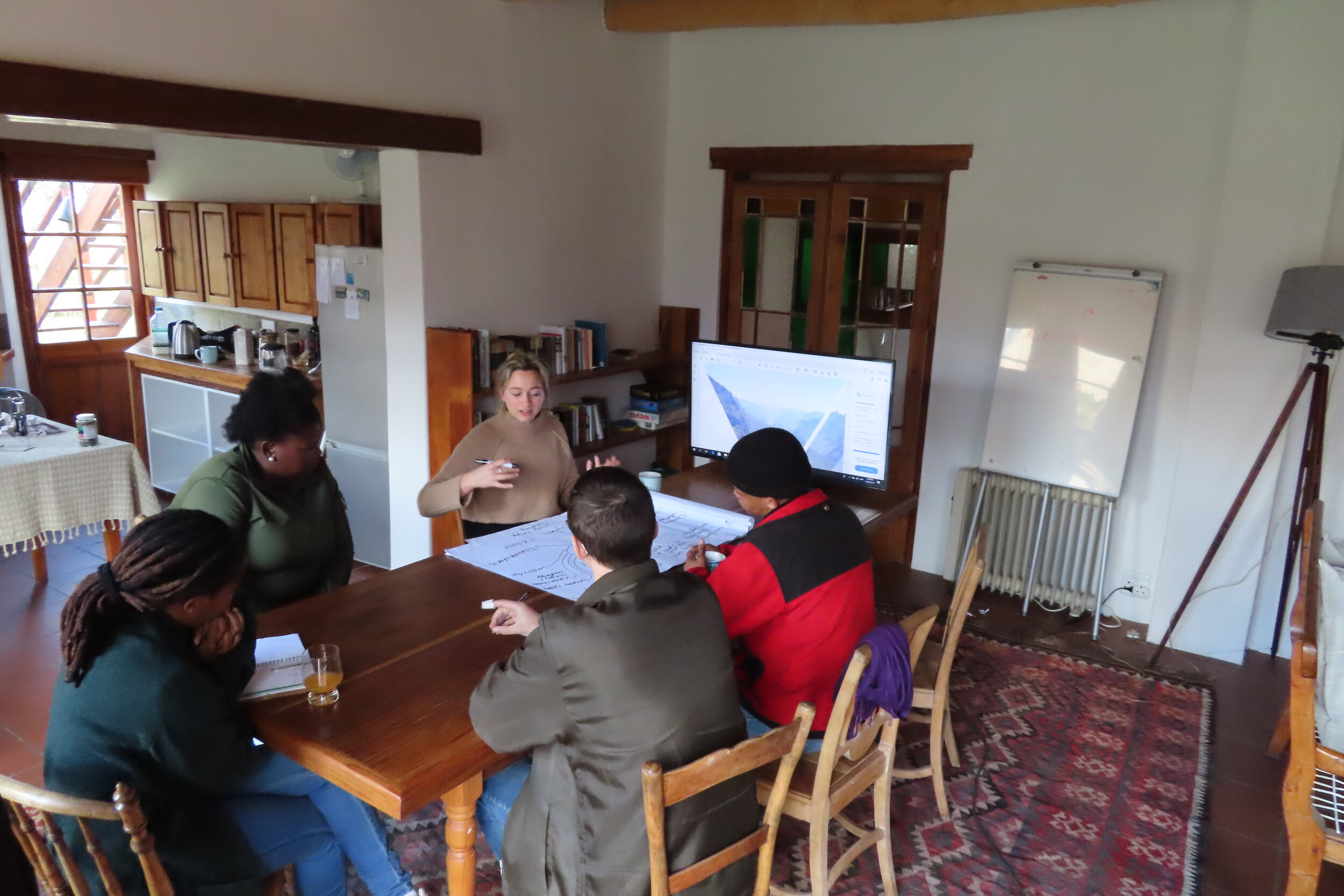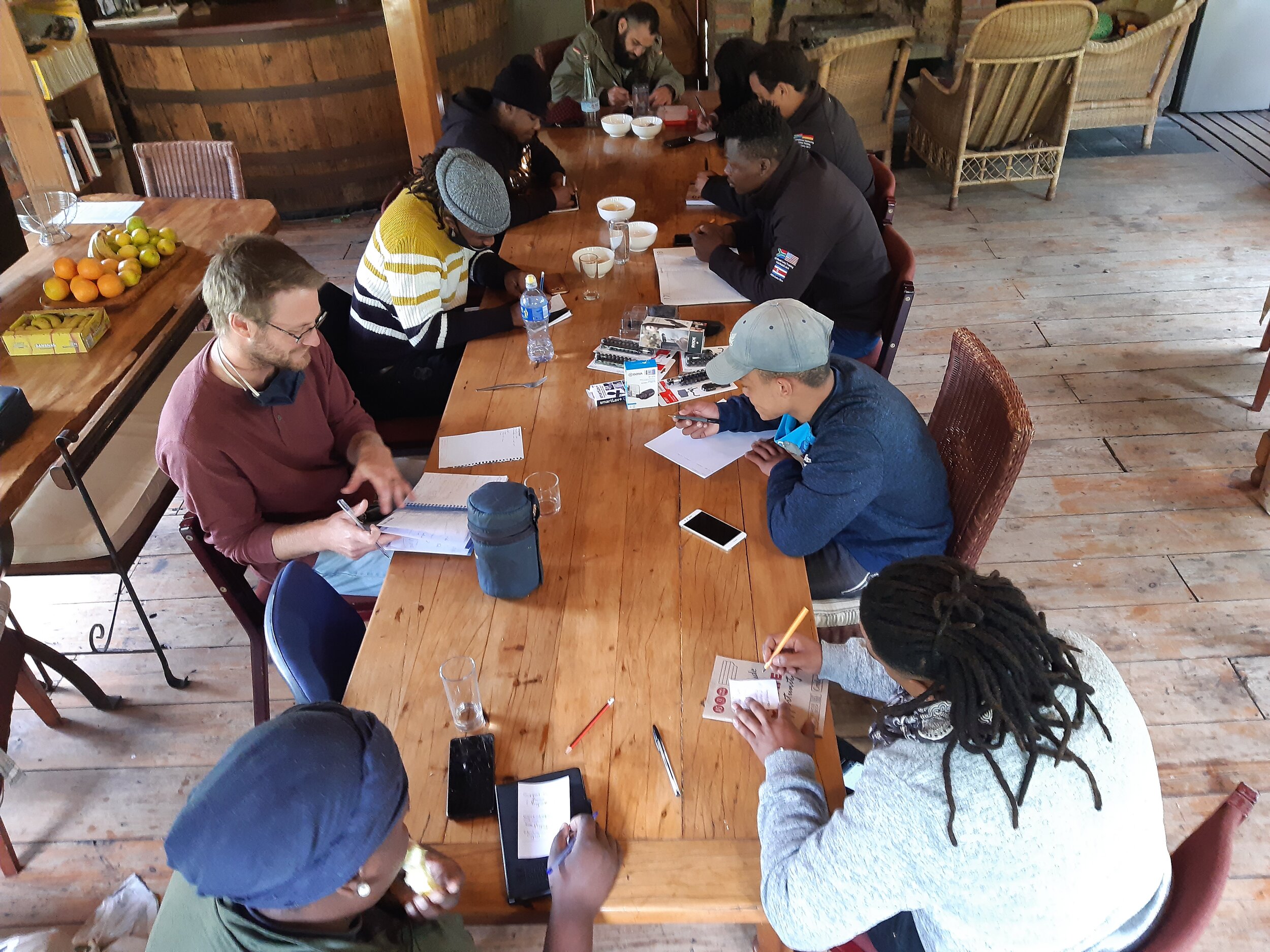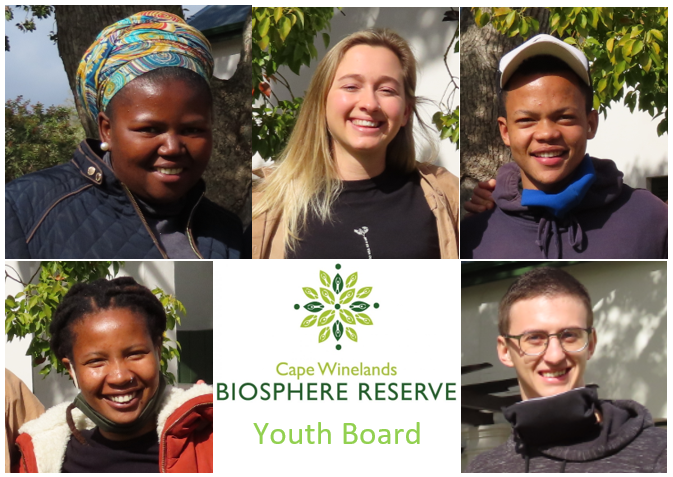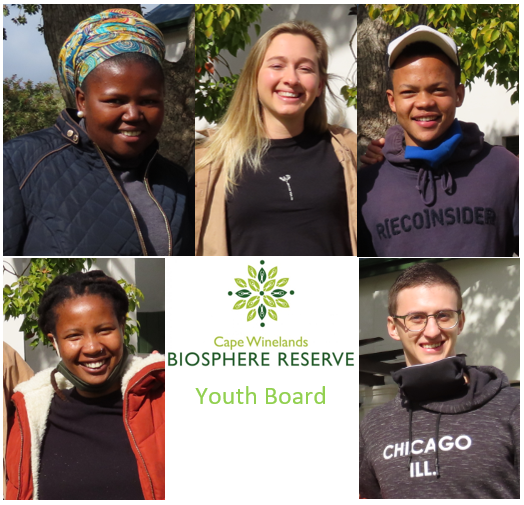“I have always been captivated by storytelling. The past week has been so inspiring and reignited that spark. Connecting with such incredible youth from various communities, and seeing the potential in them and the difference they are already making, has been truly amazing.” - Janique Oliver, Youth Board Member
We set off late Sunday morning with a quantum packed to the brim with filming equipment, camping gear and a considerable amount of padkos. Garden Route bound, there was much trepidation and excitement for the journey ahead. Our goal as the “Doccie Team” was to find willing participants and interview them for our Youth Documentary, to be filmed at various intervals throughout the year. The concept behind the documentary is to interview inspiring young people (under the age of 35) instigating positive change in their local communities, located within the five biosphere reserves of the Western Cape. We, as a Youth Board, aim to use the documentary as a means to celebrate the 50th anniversary of UNESCO’s MAB as well as encourage youth involvement within biosphere reserves.
Having zero filming experience, it’s safe to say I felt rather out of my depth when tasked with leading the Team. However little faith I had in myself, however, I had incredible confidence in the abilities of the rest of my team which consisted of two of the newest Youth Board members: Dean Jorgensen and Janique Oliver. Dean, our videographer, works as a videographer, photographer and website developer in both the tourism and social media sectors. Janique, our social media queen, has experience in content development and graphic design and currently works as the PR & Communications coordinator for our project partners, USIKO Stellenbosch. Between us, our little trio were eager to utilise our diverse skill sets to capture the optimism, fearlessness and resourcefulness of the young people living in our country’s biosphere reserves. Armed with back up SD cards, back up-back up SD cards, coffee and nervous-excitement, we ventured out to find our first stories.
The interviews took us to a wide variety of places and spaces in the Garden Route Biosphere, starting in George, moving on to the small villages of Great Brak River and Touwsranten and finally, spending some time in Stormsriver. While reflecting back on the day spent with our interviewees during the car trips home to our campsite, we would often come back to familiar thoughts and feelings. Although, physically drained from a long day shooting there was a deeper energy gained from every interaction we encountered. Each individual and their associated networks seemed to ooze an infectious passion, drive and hope for not only their own future but that of their communities and country too. As young people ourselves, we could also relate to the frustration and disillusionment felt at times since the outbreak of the pandemic. Despite our vastly different backgrounds, we shared similar anxieties but at the same time a greater optimism for our collective future.
We feel immensely privileged to have connected with these young people and look forward to linking up with youth located in the West Coast Biosphere Reserve, very soon. If you are a young person living in this area and would like to connect with us or have a recommendation, please do not hesitate to contact us on youth@capewinelands.co.za.
To find out more about the documentary visit our social media platforms on Instagram and Facebook where you can follow more behind the scene developments as they unfold over the coming months.
Capturing Footage
Interview in George
Team meeting
Tsitsikamma
Interviewing youth in Touwsranten











